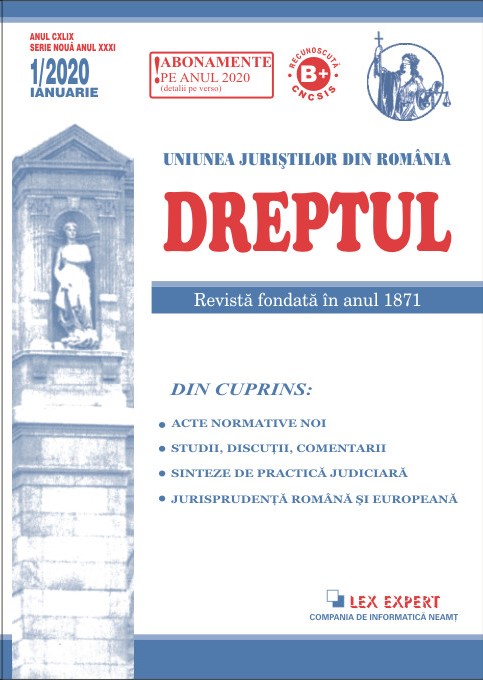Refuzul condamnatului de a se supune examenului medical la primirea în penitenciar – expresie legitimă a autonomiei persoanei sau conduită reprobabilă?
Refusal of the convicted person to be subject to the medical examination upon the acceptance to the penitentiary – legitimate expression of the person’s autonomy or reprehensible conduct?
Author(s): Radu Vlad PojanSubject(s): Criminal Law
Published by: Uniunea Juriștilor din România
Keywords: detainees; medical exam; rights; penitentiary; Romania;
Summary/Abstract: The article analyzes the refusal of the convicted person to be subject to the medical examination upon the arrival to the penitentiary, from the perspective of the Romanian legislation, in correlation with the international instruments regarding the rights of detainees, and legislative solutions adopted by other European states, arguing some proposals de lege ferenda meant to facilitate the fulfilment of the positive obligation of the state to prevent the spread of contagious diseases in the penitentiary environment. The objectives of the article are to determine whether the detainee has the right to refuse the medical examination, whether the Romanian legislation complies with the requirements of the international instruments regarding the protection of the rights of the detainees, respectively whether they have similarities with the legislations of other European states; at the same time, the aim is to identify some rules applicable to the penitentiary system, derived from the case law developed by the ECtHR/Court and from international documents, in relation to the right to health and the relationship between the autonomy of the detainees as persons and the prison environment. The results of the analysis of the legislation, the case law, the international documents show that the convicted person may refuse the medical examination, this legislative approach not being in contradiction with the norms accepted at international level and being shared also by other European states; at the same time, certain standardized norms regarding the right to health in the penitentiary can be outlined from the case law influenced by the recommendations in the international documents and by the CPT reports. The implications consist in clarifying the problems discussed, facilitating a unitary practice.
Journal: Revista „Dreptul”
- Issue Year: 2020
- Issue No: 01
- Page Range: 132-153
- Page Count: 22
- Language: Romanian
- Content File-PDF

